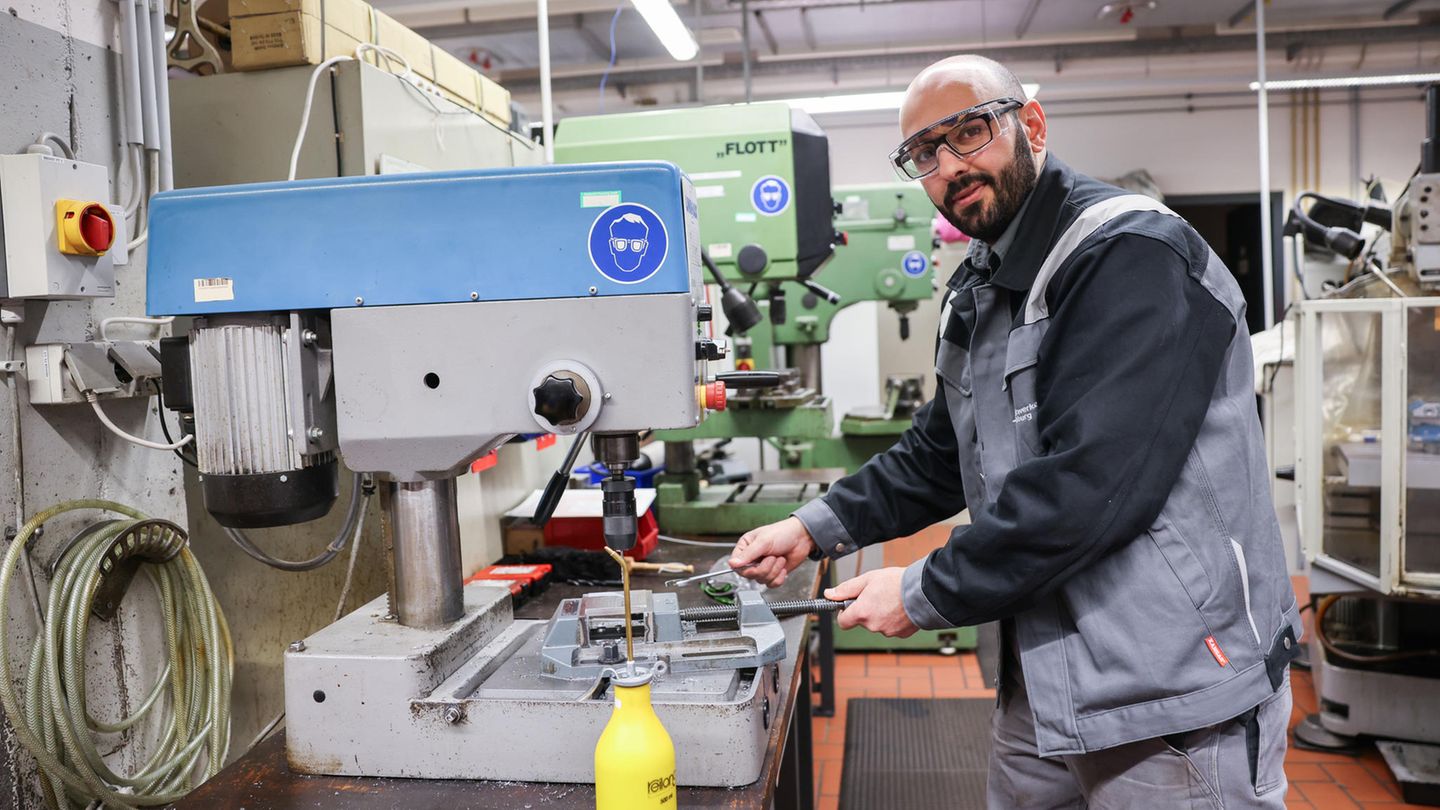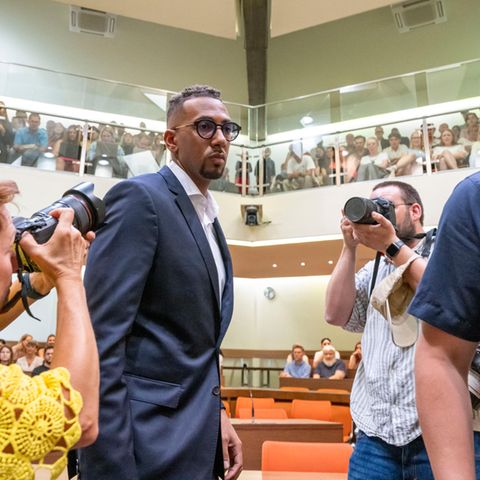The non-governmental organization Tent brings refugees and companies together. Well-known names such as Eintracht Frankfurt, Deutsche Post, SAP and Otto are involved. What is important about the programs.

This is original content from the Capital brand. This article will be available for ten days on stern.de. After that, you will find it exclusively on capital.de. Capital, like the star to RTL Germany.
Anastasiia Vitrik was a sports journalist in her homeland of Ukraine. Shortly after the war began, she took an emergency train from Kiev to Poland, from where a Red Cross volunteer took her to Frankfurt am Main. The Mariott hotel chain offered Ukrainians free accommodation and food there for almost three months, for which Vitrik thanked them in an email. In it, she also asked whether they offered jobs for Ukrainians.
“I came here with no knowledge of German at all, just a little English, but they immediately invited me for an interview,” says Vitrik. “From that first meeting, I was so motivated and wanted to work for them that I signed the offer the day after receiving it.”
Today she works in the restaurant as a junior chef and can then attend German courses. She tells all this at an event organized by the German alliance Tent Partnership for Refugees. The non-governmental organization (NGO) has been working to bring refugees and companies together since 2016 and was named one of the 100 most influential companies by Time Magazine this year.
More than 400 large companies in twelve markets in North and South America and Europe are now part of the alliance, including Fedex, Coca Cola, Amazon and Unilever. The NGO says it has already given 250,000 refugees jobs. An alliance of 66 companies has now also started in Germany. These include Barilla, Deutsche Post DHL, Eintracht Frankfurt, Otto Group, Mariott and SAP. Against the backdrop of the increasing shortage of skilled workers and labor, the integration of refugees into the labor market appears to be becoming more important for companies.
More people on the run than ever before
Over the past four years, the number of job vacancies in Germany has roughly doubled, while society is aging and it is clear that Germany is dependent on the immigration of qualified workers. However, while immigrants from other EU countries are mostly employed after just a few years, the rate for immigrants from outside the EU is lower and the process is longer.
According to the latest report by the UN Refugee Agency (UNHCR), last year saw more refugees than ever before, with 117 million people. Most refugees in 2023 came from Afghanistan, Syria, Venezuela and Ukraine.
Often it is refugees with incomplete CVs or unrecognized certificates who cannot find work here – even though they are urgently needed. Tent wants to help with the placement. “We are the link between companies and implementation partners,” says Tent Germany boss Christian Schmidt in an interview with Capital. By this he means partners such as “Jobs for Refugees” or the “Redi School of Digital Integration”, but also traditional recruitment agencies such as Adecco and Manpower, with whom Tent works.
Companies share job profiles with Tent
The NGO is also in contact with the job centers and the Federal Employment Agency. “First, the companies share a few job profiles with us and we limit ourselves to certain regions nationwide,” says Schmidt. “We then analyze which implementation partner best fits the desired profiles and work with the company to draw up a roadmap for the next three to six months.”

Tent trains companies, among other things, on how to deal with gaps in CVs and facilitates exchanges between member companies. The latter does not cost anything, and the founder Hamid Ulukaya finances the work of the organization with around 60 employees. He himself comes from Turkey, studied there and immigrated to the USA in 1994. He took out a loan to buy an old yogurt factory, developed a recipe inspired by his origins and founded Chobani – today one of the most popular yogurt brands in the USA. According to Forbes Magazine, his fortune is 2.3 billion US dollars, and he is also known as the “yogurt king”.
IT specialists wanted
According to Tent, some companies want to hire refugees directly, while others are getting involved in career preparation measures, says Schmidt. Both skilled workers and workers are needed, especially in production. The most challenging thing at the moment is finding IT specialists.
Many refugees are highly qualified, but the certificates from their countries of origin are often not directly recognized here. This needs to be accelerated in cooperation with institutions, also in the interests of companies, says the Tent Germany boss. “We have 1.7 million vacancies in Germany and over two million refugees, 500,000 of whom are not yet in a job despite having a work permit,” says Schmidt. “There is no alternative to promoting the economic integration of refugees.”
Figures from the Federal Statistical Office for 2022 show that it often takes several years for refugees from these regions to find employment. After less than five years, 21 percent of women and 49 percent of men from the Middle East are employed, while from Africa the figure is 36 percent of women and 72 percent of men. After ten to 15 years, the employment rate is already around 20 percent higher for almost all of them.
Employees with an immigration history also work more often in low-skilled occupations than employees without. According to the Federal Statistical Office, this is most clearly shown by the number of unskilled workers: among employees with an immigration history, the proportion was 15.6 percent in 2022, while among those without it was only 4.7 percent. For academic professions, the figure is 17.4 percent compared to 24 percent.
However, the proportion of foreign employees since 2010 shows that something is happening: it has more than doubled to more than 15 percent in 2023. According to the federal government, the number of foreigners employed subject to social insurance contributions rose by 56 percent between 2017 and 2023 alone. Almost three quarters of the new jobs created in the past six years were foreign employees. With the German alliance, Tent hopes to contribute to further increasing numbers.
Source: Stern




